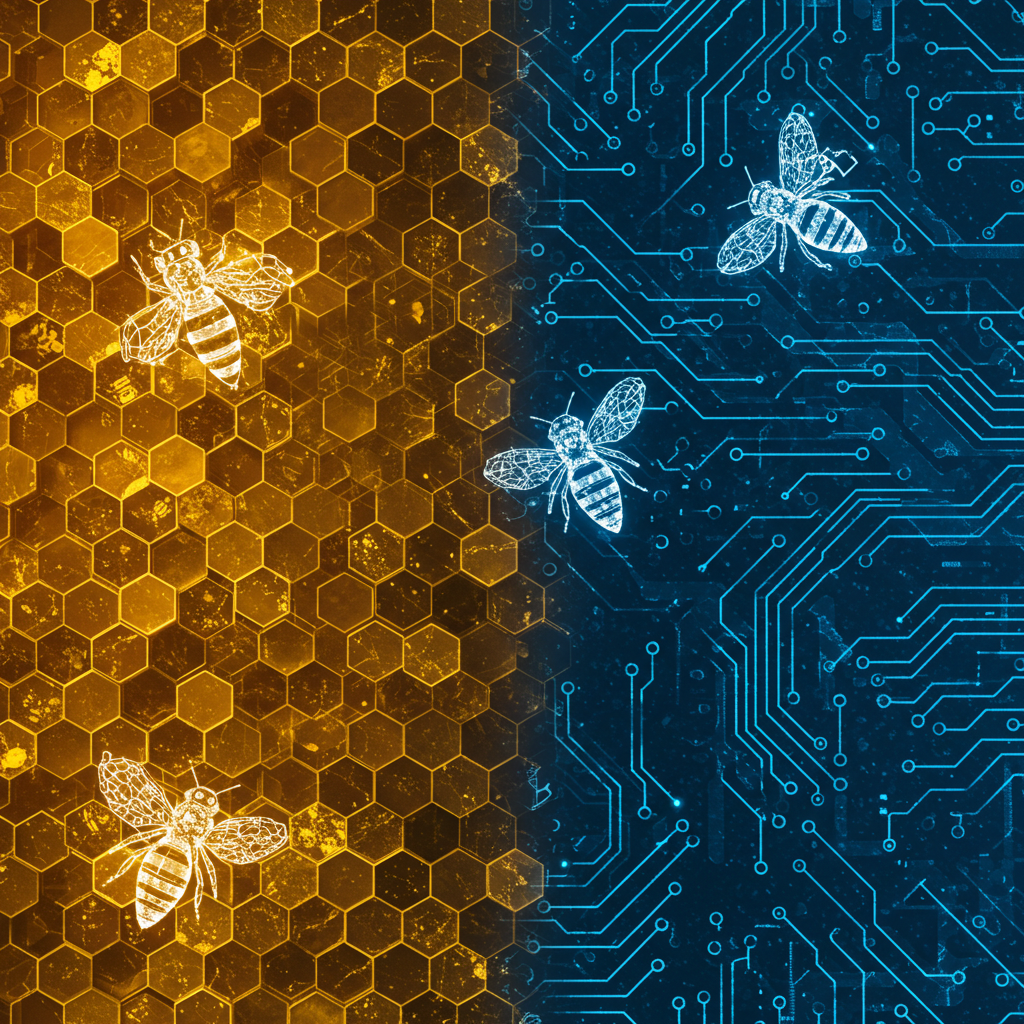In the rolling orchards of California, a quiet revolution is underway. It doesn’t involve a new smartphone or a social media app, but something far more fundamental: the food we eat. The star of this revolution is an unassuming, solar-powered box called the BeeHome, and inside it, an AI-powered robotic beekeeper is working 24/7 to solve one of the most critical environmental challenges of our time.
This is the work of Beewise, a climate tech company that has created a groundbreaking solution to the alarming decline of bee populations worldwide—a crisis that threatens global agriculture, as 75% of the world’s crops rely on these tiny pollinators.
The Problem: A System Under Threat
For over a century, beekeeping has relied on simple wooden boxes and manual, in-person inspections that happen only every few weeks. This system leaves bee colonies vulnerable to a host of modern threats that can cause a hive to collapse before a beekeeper even knows there’s a problem. These threats include:
- Pesticides and pathogens.
- Extreme weather events caused by climate change.
- Pests like the destructive Varroa mite, a parasite that weakens bees and spreads disease.
The consequences are staggering, with some reports indicating that beekeepers in the US lost an estimated 48% of their managed honeybee colonies last year alone.
The Solution: A 24/7 Robotic Beekeeper
The Beewise BeeHome is designed to be a holistic, autonomous guardian for bee colonies. Instead of just monitoring, it uses AI and robotics to actively manage and care for the bees in real-time.
Here’s how it works:
- Constant AI Monitoring: Using computer vision and machine learning, the system continuously monitors the bees, analyzing hive activity down to the individual honeycomb cells. It can count bees, detect diseases, identify pests, and assess the overall health of the colony around the clock.
- Robotic Intervention: When the AI detects a problem, an internal robotic arm can take immediate action without human intervention. This can include dispensing medication or supplemental feeding, automating honey harvesting, or remotely closing hive entrances to protect bees from nearby pesticide spraying.
- Optimal Living Conditions: The BeeHome is a climate-controlled, solar-powered habitat. It is better insulated than traditional wooden hives and can automatically adjust temperature and humidity to protect the colony from extreme weather.
The Impact: Healthier Bees, Higher Yields
The results of this high-tech approach are transformative. Beewise reports that their BeeHome technology reduces bee mortality by as much as 80% and can increase crop pollination yields by at least 50%. Furthermore, it automates up to 90% of the manual labor involved in traditional beekeeping.
Beewise already has over 1,200 BeeHomes in operation, pollinating hundreds of thousands of acres for major agricultural growers, particularly for crops like almonds which have a critical dependency on honey bee pollination. It’s a real-world application of AI and robotics that directly addresses a critical link in our global food supply chain.
By combining the timeless work of bees with the tireless precision of AI, companies like Beewise are not just building a fascinating piece of tech; they are building a more resilient and sustainable future for us all.

